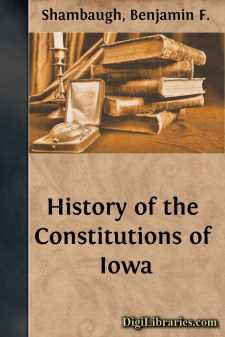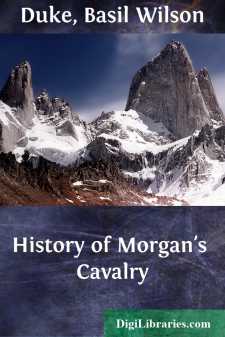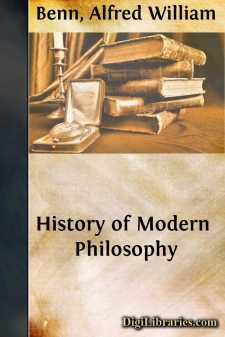Fiction
- Action & Adventure 180
- Biographical 15
- Christian 59
- Classics 6965
- Coming of Age 5
- Contemporary Women 3
- Erotica 8
- Espionage/Intrigue 12
- Fairy Tales, Folklore & Mythology 236
- Family Life 169
- Fantasy 117
- Gay 1
- General 596
- Ghost 32
- Historical 808
- Horror 43
- Humorous 160
- Jewish 25
- Legal 4
- Medical 22
- Mystery & Detective 315
- Political 49
- Psychological 41
- Religious 64
- Romance 159
- Sagas 11
- Science Fiction 730
- Sea Stories 113
- Short Stories (single author) 537
- Sports 10
- Suspense 1
- Technological 8
- Thrillers 2
- Urban Life 31
- Visionary & Metaphysical 1
- War & Military 173
- Westerns 199
Fiction Books
Sort by:
CHAPTER I. So thrilling were my experiences during that period, so overcrowded with feverish action and strong emotions was each wonderful moment, and so entirely changed are the conditions of life as I now find it, that it is with considerable difficulty that I recall in detail all that happened prior to my remarkable discovery which opened communication between Earth and Mars. One says...
more...
by:
Chauncey Jerome
CHAPTER I. EARLY DAYS.—LEAVING HOME.—BOUND OUT.—FARMING.—CARPENTER.—SOLDIER.—CLOCK MAKING. I was born in the town of Canaan, Litchfield County, in the State of Connecticut, on the 10th day of June, 1793. My parents were poor but respectable and industrious. My father was a blacksmith and wrought-nail maker by trade, and the father of six children—four sons and two daughters. I was the...
more...
I INTRODUCTION Three score years and ten after the declaration went forth from Independence Hall that "all men are created equal," and fifteen years before the great struggle that was to test whether a nation dedicated to that proposition can long endure, Iowa, "the only free child of the Missouri Compromise," was admitted into the Union on an equal footing with the original States....
more...
HISTORY. I was born on the 10th of June, 1840, in Thornton, a small town in the northern part of New Hampshire. I was the youngest of six children. Our parents were poor in this world’s goods, but rich in faith and in the knowledge of God as it is in Christ Jesus. My early instructions were limited to a common school, and I was deprived of this at the age of twelve years. Had I improved even these...
more...
CHAPTER I In undertaking to write the history of General Morgan's services, and of the command which he created, it is but fair that I shall acknowledge myself influenced, in a great measure, by the feelings of the friend and the follower; that I desire, if I can do so by relating facts, of most of which I am personally cognizant, to perpetuate his fame, and, at the same time, establish the true...
more...
CHAPTER I. RELATES TO MR. HARRY FOKER'S AFFAIRS. Since that fatal but delightful night in Grosvenor place, Mr. Harry Foker's heart had been in such a state of agitation as you would hardly have thought so great a philosopher could endure. When we remember what good advice he had given to Pen in former days, how an early wisdom and knowledge of the world had manifested itself in the gifted...
more...
PREFACE. When detached or individual histories become so numerous that they can neither be easily collected nor perused, the public interest requires a writer capable of arranging and embodying them in the form of a general historical narrative; not, indeed, by a minute detail of their whole contents, but by selecting from each that which appears most interesting and instructive. Hence it mostly...
more...
ROMAN SCHOOL. I have frequently heard the lovers of art express a doubt whether the Roman School possesses the same inherent right to that distinctive appellation as the schools of Florence, Bologna, and Venice. Those of the latter cities were, indeed, founded by their respective citizens, and supported through a long course of ages; while the Roman School, it may be said, could boast only of Giulio...
more...
Miriam I It is an illogical consequence of one human being’s ill-treatment that we should fly immediately to another, but that is the way with us. It seemed to Mr. Polly that only a human touch could assuage the smart of his humiliation. Moreover it had for some undefined reason to be a feminine touch, and the number of women in his world was limited. He thought of the Larkins family—the Larkins...
more...
Chapter I. For a thousand years after the schools of Athens were closed by Justinian philosophy made no real advance; no essentially new ideas about the constitution of nature, the workings of mind, or the ends of life were put forward. It would be false to say that during this period no progress was made. The civilisation of the Roman Empire was extended far beyond its ancient frontiers; and, although...
more...











